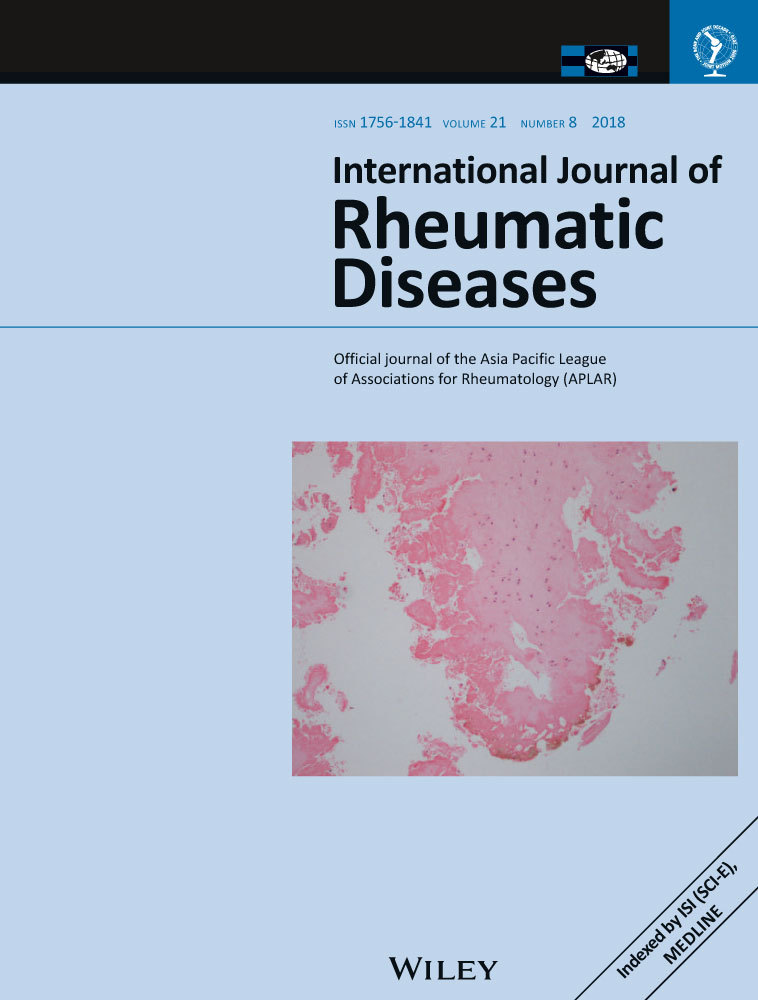Adiponectin exerts a potent anti-arthritic effect and insulin resistance in collagen-induced arthritic rats
Abstract
Aim
Previous research has shown that adiponectin (AD) induces severe insulin resistance (IR) and exhibits pro-inflammatory effect, so it could serve as a useful risk biomarker in rheumatoid arthritis (RA). The present study aims to evaluate the effect of AD on IR and anti-arthritis in collagen-induced arthritic (CIA) rats.
Method
After immunization with bovine type II collagen (CII), Wistar rats were administered with AD (60 μg/kg/day) or saline into the ankle joint cavity of the left hind leg for 15 days. The severity of arthritis was clinically and histologically assessed. Arthritis score was recorded every other day for each paw. Paw volume was measured on alternate days to monitor the progression of the disease in the arthritic control group. Tumor necrosis factor (TNF)-α, interleukin (IL)-1, AD, insulin and fasting glucose were measured in sera. Histopathology of joint synovial tissues was also examined.
Results
Treatment with AD resulted in significantly delayed onset of arthritis as well as decreased clinical arthritis and histopathological severity scores. AD reduced both serum fasting glucose, TNF-α, IL-1 and IR. Histological analysis confirmed treatment with AD suppressed joint synovial inflammation and immunohistochemical expression of TNF-α compared to the CIA group. Surprisingly, adiponectin levels measured by enzyme-linked immunosorbent assay in serum were significantly increased in CIA rats compared to the normal group.
Conclusions
Adiponectin might display anti-inflammatory effects. These results suggest that AD may be a potential immunosuppressant for the treatment of RA linked to metabolic disease.




